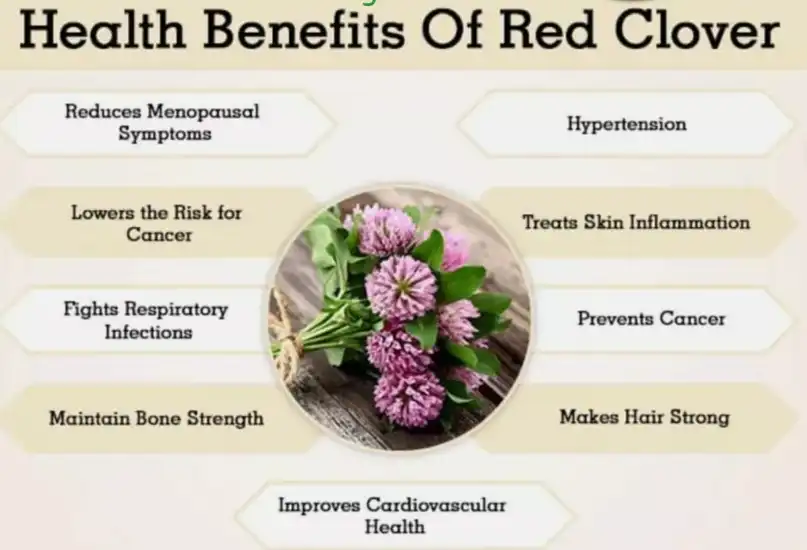
Can red clover isoflavones increase breast size?
One of the most common questions surrounding red clover isoflavones is whether they can increase breast size. This interest stems from the fact that these compounds have estrogen-like properties, and estrogen is known to play a role in breast development and tissue growth. However, it's important to approach this topic with a balanced perspective and understand the scientific evidence available.
While some anecdotal reports suggest that red clover isoflavones may contribute to breast enlargement, scientific studies have not conclusively demonstrated this effect. The relationship between phytoestrogens and breast tissue is complex and can vary from person to person. Several factors influence breast size and shape, including genetics, overall body composition, and hormonal balance.
Research on the effects of red clover isoflavones on breast tissue has primarily focused on their potential health benefits rather than cosmetic changes. Some studies have investigated the impact of isoflavones on breast density, which is a measure of the proportion of glandular and connective tissue to fat in the breasts. Breast density is an important factor in breast cancer risk assessment.
A study published in the journal "Breast Cancer Research" examined the effects of red clover isoflavones on breast density in pre- and post-menopausal women. The results showed no significant changes in breast density after 12 months of supplementation. This suggests that while red clover isoflavones may interact with breast tissue, they do not necessarily lead to increased breast size or changes in breast composition.
It's crucial to note that breast health and size are influenced by various factors, including diet, exercise, and overall health. While red clover isoflavones may offer some health benefits, they should not be relied upon as a method for breast enlargement. Women interested in enhancing their breast size should consult with a healthcare professional to discuss safe and effective options.
How do red clover isoflavones affect breast cancer risk?
The relationship between red clover isoflavones and breast cancer risk has been a subject of extensive research and debate within the scientific community. As phytoestrogens, these compounds can interact with estrogen receptors in the body, leading to questions about their potential impact on hormone-sensitive cancers like breast cancer.
Several studies have investigated the effects of red clover isoflavones on breast cancer risk, with mixed results. Some research suggests that these compounds may have protective effects against breast cancer, while other studies have found no significant impact or even raised concerns about potential risks.
A review published in the "Journal of Steroid Biochemistry and Molecular Biology" analyzed multiple studies on isoflavones and breast cancer. The authors concluded that the overall evidence suggests a protective effect of isoflavones against breast cancer, particularly when consumed as part of a whole-food diet rich in soy and other plant-based sources. However, they also noted that the effects may vary depending on factors such as an individual's age, menopausal status, and genetic makeup.
One proposed mechanism by which red clover isoflavones may influence breast cancer risk is through their interaction with estrogen receptors. These compounds can bind to estrogen receptors in breast tissue, potentially competing with the body's natural estrogen. In some cases, this interaction may help modulate estrogen activity and reduce the growth-promoting effects of estrogen on breast cancer cells.
Additionally, red clover isoflavones have been shown to possess antioxidant properties, which may help protect cells from DNA damage and reduce the risk of cancer development. Some studies have also suggested that these compounds may inhibit the growth and spread of existing breast cancer cells, although more research is needed to confirm these findings.
It's important to note that while some research shows promising results, the effects of red clover isoflavones on breast cancer risk may vary among individuals. Factors such as a person's overall diet, lifestyle, and genetic predisposition to breast cancer can all influence how these compounds affect breast health.
Women with a history of breast cancer or those at high risk for the disease should consult with their healthcare provider before using red clover isoflavone supplements. In some cases, the estrogen-like effects of these compounds may not be recommended for individuals with hormone-sensitive cancers.
What are the potential benefits of red clover isoflavones for breast health?
Red clover isoflavones offer several potential benefits for breast health beyond their possible effects on cancer risk. These compounds have been studied for their impact on various aspects of women's health, including breast tissue health and overall well-being.
One of the primary benefits associated with red clover isoflavones is their potential to alleviate symptoms of menopause. Many women experience breast tenderness and discomfort during menopause due to hormonal fluctuations. Some studies have suggested that red clover isoflavones may help reduce these symptoms by providing a natural, plant-based source of estrogen-like compounds.
A randomized, double-blind, placebo-controlled study published in the journal "Maturitas" investigated the effects of red clover isoflavones on menopausal symptoms, including breast tenderness. The researchers found that women who took red clover isoflavone supplements experienced a significant reduction in breast pain and tenderness compared to those who received a placebo.
Another potential benefit of red clover isoflavones for breast health is their antioxidant properties. These compounds have been shown to possess strong antioxidant activity, which may help protect breast tissue from oxidative stress and cellular damage. Oxidative stress is believed to play a role in the development of various health issues, including some forms of breast cancer.
Red clover isoflavones may also contribute to maintaining healthy breast tissue by supporting proper circulation and lymphatic drainage. Improved blood flow and lymphatic function can help deliver nutrients to breast tissue and remove toxins, potentially promoting overall breast health.
Some research has suggested that red clover isoflavones may help maintain bone density, which is particularly important for postmenopausal women. While this benefit is not directly related to breast health, it is an important consideration for overall women's health and well-being.
It's worth noting that while these potential benefits are promising, more research is needed to fully understand the effects of red clover isoflavones on breast health. The impact of these compounds can vary among individuals, and factors such as dosage, duration of use, and individual health status can all influence their effectiveness.
Women interested in using red clover isoflavones for breast health should consult with a healthcare professional to determine if they are appropriate for their individual needs. A healthcare provider can offer personalized advice based on a woman's medical history, current health status, and specific health goals.
In conclusion, red clover isoflavones offer a range of potential benefits for breast health, from alleviating menopausal symptoms to providing antioxidant protection. While they may not directly increase breast size, these compounds can contribute to overall breast health and well-being. As with any supplement or health intervention, it's essential to approach the use of red clover isoflavones with a balanced perspective and in consultation with a healthcare professional.
If you are also interested in this product and want to know more product details, or want to know about other related products, please feel free to contact lea_slsbio@163.com,WhatsApp+86 13193326505.


